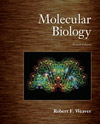 |
1 |  | 
In the lytic cycle of phage replication |
 |
 |  | A) | phage genes integrate into the host cell genome and are not expressed |
 |  | B) | phage genes exist as prophage |
 |  | C) | phage DNA remains inside the protein coat |
 |  | D) | phage nucleic acid is replicated and phage genes are expressed, making new phage protein and lysing the host cell |
 |
2 |  | 
A prophage is |
 |
 |  | A) | phage DNA integrated into host cell genome |
 |  | B) | phage DNA being actively expressed |
 |  | C) | phage protein left outside the bacterium |
 |  | D) | toxic to the host bacterial cell |
 |
3 |  | 
Which of the following can cause a phage in the lysogenic stage to revert to the lytic stage? |
 |
 |  | A) | lack of nutrients |
 |  | B) | ultraviolet light |
 |  | C) | a competing phage |
 |  | D) | darkness |
 |  | E) | an electrical charge |
 |
4 |  | 
In the lysogenic stage of phage replication, the host cell is lysed. |
 |
 |  | A) | True |
 |  | B) | False |
 |
5 |  | 
Once a phage becomes lysogenic, it will remain lysogenic and never be lytic again. |
 |
 |  | A) | True |
 |  | B) | False |




